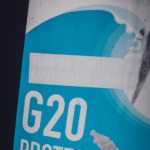The G20 Development Working Group has gradually evolved throughout the years, following a haphazard and contradictory path. On the one hand, it has been progressively overshadowed by a sectoralisation of G20 activities, with several action tracks (i.e., the Finance Track) taking a more prominent role in the definition of the leaders’ priorities. On the other hand, its (unexploited) potential has increased due to the emergence of several global crises that have shown the importance of rekindling multilateral solutions at the G20 level. The T20 has a strong potential to boost G20 legitimacy on development cooperation worldwide, by drafting evidence-based and pragmatic policy proposals for the decision-makers. However, although often advocating for similar solutions, the Development Working Group and T20 have not necessarily fed into each other’s policy agendas, leading to misalignment and reducing their chances to influence other G20 tracks on crucial development issues such as development finance, food security or the global climate agenda.
This publication first appeared on the IAI site.
Read the full paper here.
Author: Daniele Fattibene, ETTG Coordinator and researcher at IAI.
Photo by Randy Tarampi on Unsplash.
The views are those of the authors and not necessarily those of ETTG.
Related posts:
 Supporting the Global South in tackling climate change: where is the G20 heading?
Supporting the Global South in tackling climate change: where is the G20 heading?
 Supporting developing countries for a global sustainable recovery: lessons from the Italian G20 Presidency
Supporting developing countries for a global sustainable recovery: lessons from the Italian G20 Presidency

